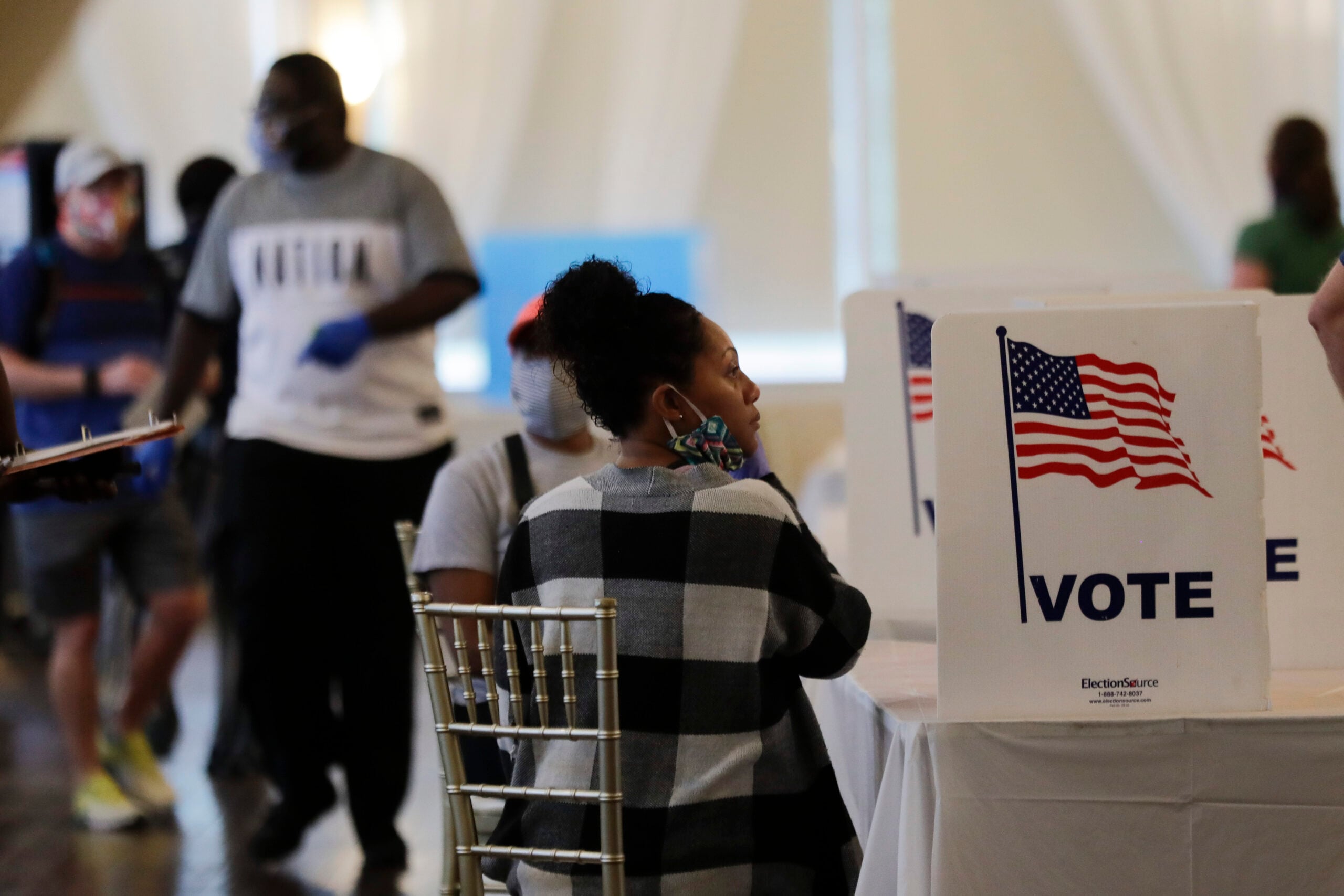Emory Professor Discusses Voter Suppression, Senate Bill 202, Power Of Black Vote

Supporters of Senate Bill 202 say it would prevent voter fraud and ensure voter confidence. But the bill is being met with criticism as many claim it’s restrictive and that it will disenfranchise minority voters.
Brynn Anderson / Associated PRess file
In the aftermath of the November elections, some Georgia lawmakers are pushing for changes to the state’s election laws.
Senate Bill 202, one of the bills heavily backed by Republicans, now awaits final votes in the state Legislature.
The 94-page proposed bill, if passed, would require additional voting identification for early voting, place restrictions on advance and weekend voting, limit drop boxes and prohibit Georgia counties from accepting grant funding, among other changes.
Supporters of the bill say it would prevent voter fraud and ensure voter confidence.
But the bill is being met with criticism, many claiming it’s restrictive and saying it will disenfranchise minority voters.
“That lie of voter fraud is really designed to implement voter suppression policies,” said Carol Anderson, the Charles Howard Candler Professor of African American Studies at Emory University.
Anderson, who wrote the book “One Person, No Vote: How Voter Suppression Is Destroying Our Democracy,” was a guest on Tuesday’s edition of “Closer Look.”
During the virtual interview, Anderson told show host Rose Scott that she believes Senate Bill 202 is based on false premises.
“If it passes, I expect immediate legal challenges,” said Anderson. “It is really clear that this bill is based on the [big lie] — the big lie that led to the Capitol insurrection, the big lie about the stealing of the vote, the big lie about massive voter fraud.”
Anderson also said lawmakers have historically tried to shut down Black voting power — citing several examples, including literacy tests, poll taxes and the Mississippi Plan.
To listen to the full conversation, click the audio player above.








